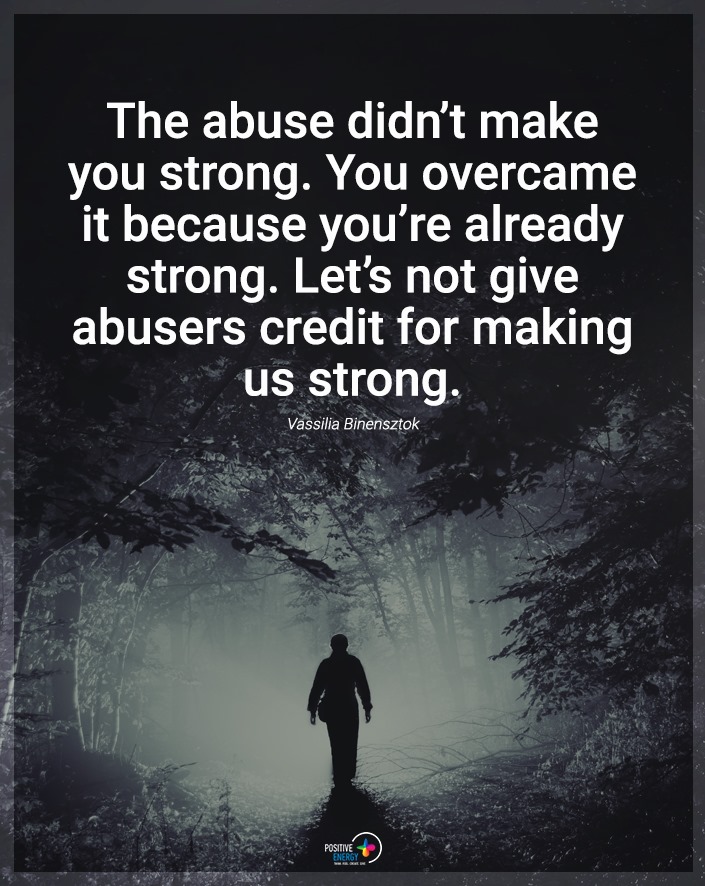Have you ever felt like people ignore you or don’t pay attention to what you have to say? This experience can be frustrating and isolating, leaving you wondering why others disregard your presence. However, according to scientific research, this feeling of being ignored can stem from several internal and external factors.
Feeling ignored is a common experience that can have significant psychological and social consequences. One possible explanation for why people feel ignored is their lack of social skills to engage effectively with others. Individuals who struggle with social skills may find it challenging to connect with others and be noticed in social situations.
As a result, they may feel like others are ignoring them, even if this is not the case. Another factor that can contribute to feeling ignored is the behavior of others. For example, people who are preoccupied with their concerns, distracted by technology, or simply uninterested in socializing may give the impression of ignoring others.
Additionally, some individuals may ignore others to express their power or superiority. This can leave the ignored person feeling hurt and powerless. And many more factors can explain why you might feel ignored. But no matter the reason why you might feel ignored, the effects are always harmful.
The experience of feeling ignored can have significant psychological and social consequences, including feelings of loneliness, depression, and anxiety. Sometimes, feeling ignored can lead to physical health problems, such as chronic pain or hypertension. Therefore, promoting social skills development and creating more inclusive social environments is essential to prevent and address this issue.
7 Reasons Why You Feel Like People Ignore You

1. Social Anxiety Makes You Uncomfortable With Attention
Social anxiety is a common mental health disorder affecting a person’s ability to function in social situations. It is characterized by an intense fear of social situations and the possibility of negative evaluation or judgment by others. People with social anxiety may experience physical symptoms such as sweating, shaking, rapid heartbeat, or nausea. They also struggle with cognitive symptoms such as excessive self-consciousness, fear of embarrassment, or negative self-talk.
One way social anxiety manifests is by perceiving others as ignoring or rejecting them. Of course, this is a feeling that you’ll have, even if this is not the case. This can be due to a hypersensitivity to social cues, such as body language, tone of voice, or facial expressions. For example, a person with social anxiety may interpret a neutral facial expression as a sign of disinterest or rejection.
This often leads them to feel ignored or undervalued. Furthermore, people with social anxiety may engage in negative self-talk, thinking they are unlikeable, unworthy, or unimportant. This negative self-talk can further reinforce the perception that others ignore them and lead to a self-fulfilling prophecy.
2. Low Self-Esteem May Cause People to Underestimate or Ignore Your
People with low self-esteem may struggle with a negative self-image and may not believe they are worthy of attention or respect. They may feel like they are not attractive or valuable enough for others to pay attention to them. This can lead to the perception that others are ignoring them.
Various factors, such as adverse childhood experiences, trauma, or chronic stress, can cause low self-esteem. It can also develop through negative self-talk, such as criticizing oneself or engaging in unfavorable comparisons. People with low self-esteem may also tend to internalize negative feedback and criticism. This can further reinforce their negative beliefs about themselves.
It’s important to note that low self-esteem is a treatable condition. Individuals with low self-esteem can benefit from seeking support from mental health professionals. With the appropriate help and treatment, people with low self-esteem can learn to improve their self-image and feel more confident.
3. Insecurity May Cause You To Divert Attention to Others Subconsciously
You might be insecure about your place in a group or feel inadequate. But that means you may perceive that others are ignoring you even if they are not. When you compare yourself to others, you may feel like you do not meet their expectations or standards. You may think that they are not interested in interacting with you.
Feeling insecure about one’s place in a group can be influenced by various factors. Past experiences of rejection or exclusion, social comparison, or negative self-talk can all affect your self-esteem. When individuals feel they do not belong, they may be more likely to misinterpret social cues as negative or hostile. This can lead to the perception that others are ignoring them.
Sometimes, feeling insecure about one’s place in a group can be associated with social anxiety or other mental health conditions. If you feel like you are struggling with feelings of insecurity or inadequacy, it may be helpful to seek support. A mental health professional can help you develop coping strategies and work on improving your self-esteem. Developing social skills and finding opportunities for positive social interactions can also help individuals feel more connected.
4. Lack of Assertiveness

Assertiveness and effective communication are essential skills for healthy social relationships. They can be necessary for preventing feelings of being ignored. However, when you have difficulty asserting yourself, you may struggle to communicate your needs clearly and effectively. This can make it challenging for others to understand what you want or need.
This ultimately leads to misunderstandings and missed opportunities for connection. For instance, you might be unhappy with how your friend treats you. But maybe you are too afraid to speak up and tell them what is bothering you. So, you’ll continue to feel like they are ignoring you. Similarly, you might be hoping for a promotion at work.
But maybe you feel uncomfortable advocating for yourself or communicating your accomplishments to your supervisor. So, if you don’t speak up, you’ll feel like they do not recognize your hard work. To overcome these challenges, practicing assertiveness and practical communication skills can be helpful.
This may involve learning to express yourself clearly. With time and practice, you can become more confident in communicating your needs and boundaries. This can help prevent feeling ignored or overlooked in your social interactions.
5. Communication Barriers
Difficulties with communication can be a significant factor in feeling ignored or overlooked by others. For instance, if you struggle to express yourself clearly, others may not fully understand your thoughts or needs. This can lead to misunderstandings and make it difficult for others to engage with you meaningfully.
Additionally, you may not pick up on important social cues if you have difficulty understanding others. Or you may struggle to interpret the intentions or emotions of those around you. This can make it challenging to connect with others and can lead to feelings of isolation or exclusion.
In some cases, difficulty with communication may result from a neurodevelopmental disorder, such as autism spectrum disorder. Such disorders can make social interactions challenging. However, in many cases, communication skills can be improved with practice and guidance. You have to try, and you’ll be able to better connect with others and feel less ignored or overlooked.
6. Social Isolation
Feeling socially isolated or lacking a support network can also contribute to feelings of being ignored by others. Without regular social interactions and relationships, you may feel disconnected from others. Plus, you may not have the opportunity to engage with them regularly. This can make forming meaningful connections with others more challenging and contribute to loneliness.
Lacking a support network can make it challenging to get your needs met. This can exacerbate feelings of being ignored or overlooked. It is important to note that social isolation can negatively impact physical and mental health. So, it is essential to prioritize building social connections and support networks to improve overall well-being.
It is crucial to prioritize building social connections and support networks. This may be through joining clubs or groups related to your interests, attending community events, or seeking counseling or therapy. By fostering social connections, you can increase your sense of belonging and reduce the likelihood of feeling ignored or excluded.
7. They Ignore You for Unfair Reasons
Sometimes, you may feel like people ignore you because they are not giving you attention–for many unfair reasons. For example, this can happen if you are in an abusive or neglectful relationship. Or it can happen when someone slights you due to your race, gender, or other factors. And it’s never a fun experience.
But, unfortunately, it’s something most people have to deal with. Feeling ignored can be an accurate and valid experience for some people. It can occur in situations with deliberate exclusion or mistreatment, such as in cases of bullying, harassment, or discrimination.
For example, if someone is being subjected to microaggressions at work due to their race or gender. In that case, they may feel like they are being ignored or not taken seriously. Similarly, if someone is in an abusive relationship, their partner may purposefully ignore them or dismiss their need for attention as a form of control.

Final Thoughts on Why You Feel Like People Ignore You
Feeling ignored is a common experience that can happen to anyone, even if others are not ignoring them. One possible reason for feeling ignored is a lack of confidence or self-esteem. People who struggle with these issues may perceive others’ actions or words as dismissive or hostile. You might misinterpret them even if they are not meant that way.
This can lead to a sense of isolation and disconnection from others and a belief that they are being overlooked. Another reason why people might feel ignored is due to their expectations or beliefs about how others should behave toward them. When these expectations are not met, it can lead to feelings of disappointment or frustration. Unfortunately, these can often be misinterpreted as being ignored.
Additionally, people may feel ignored if they are not receiving the attention they want or need from specific individuals. Despite these reasons for feeling ignored, it’s important to remember that these feelings are not always accurate reflections of reality. Others may be paying attention to it, even if you don’t always perceive it that way. Therefore, it’s essential to practice self-reflection and self-awareness. Try to communicate with others to clarify any misunderstandings and to build stronger relationships.
!function(r,u,m,b,l,e){r._Rumble=b,r[b]||(r[b]=function(){(r[b]._=r[b]._||[]).push(arguments);if(r[b]._.length==1){l=u.createElement(m),e=u.getElementsByTagName(m)[0],l.async=1,l.src=”https://rumble.com/embedJS/ug6pt”+(arguments[1].video?’.’+arguments[1].video:”)+”/?url=”+encodeURIComponent(location.href)+”&args=”+encodeURIComponent(JSON.stringify([].slice.apply(arguments))),e.parentNode.insertBefore(l,e)}})}(window,document,”script”,”Rumble”);
Rumble(“play”,{“video”:”v4eswp”,”div”:”rumble_v4eswp”,”autoplay”:2});
The post Do You Feel Like People Ignore You? Here’s Why, According to Science appeared first on Power of Positivity: Positive Thinking & Attitude.




